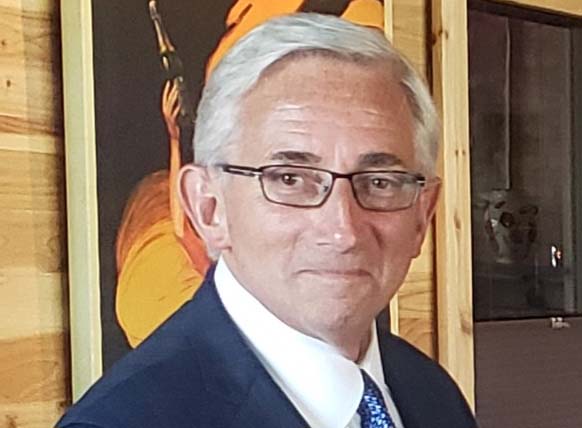Guest Blog: FCC Was Right To Not Greenlight Standard General-Tegna Deal at Expense of Local News
NABET-CWA chief says decision to designate merger for review is a matter of due process

The smarter way to stay on top of broadcasting and cable industry. Sign up below
You are now subscribed
Your newsletter sign-up was successful
FCC chair Jessica Rosenworcel was right to back up the chief of her Media Bureau in February in ruling that hedge fund Standard General’s proposed takeover of Tegna’s 64 local news stations across 51 U.S. markets deserves further scrutiny. The $8.6 billion deal is being funded in part by the country’s largest private-equity firm, Apollo Global Management, which already controls another vast local TV chain, Cox Media Group.
We have already seen the detrimental effects that Wall Street control of local journalism produces — news deserts for local communities created by consolidation and even increases in government costs as a result of the lack of scrutiny over local deals.
Now, Wall Street funds like Apollo Global Management have turned their attention to broadcast TV, and it is crucial to determine if the Standard General-Tegna megamerger will serve the public interest, and not reduce coverage of local issues, impose viewpoints that are out of step with the community, or put jobs in local newsrooms at risk. Over 80% of Americans say they find local news coverage on television and radio to be most trustworthy. We must not violate that trust by ceding control of local news to a handful of hedge funds.
Standard General’s response to the Federal Communications Commission’s request for additional review should also raise alarm bells. The company’s managing partner, Soo Kim, reacted to the FCC’s decision to take a closer look by accusing the agency of an “unaccountable power grab,” claiming that “jobs and pricing are not technically issues that fall under the Media Bureau's jurisdiction” and even going so far as to challenge the constitutionality of how the FCC oversees broadcast licensing and telecommunications.
At a time when disinformation is threatening our democracy and the public is looking for greater transparency, accuracy and accountability from elected officials, it is critical that we protect journalism at the local level."
— Charlie Braico, NABET-CWA
Wall Street investment firms like Standard General and Apollo have been at the root of local print journalism’s demise, buying newspapers and other news media, laying off journalists and selling off real estate and other remaining assets. Alden Global Capital, for example, eviscerated the Denver Post, the San Jose Mercury News and the St. Paul Pioneer Press, among many others. When Soo Kim wanted to attack the FCC for scrutinizing his hedge fund's takeover of Tegna, he turned to Alden’s network of newspapers, which published the exact same editorial in over a half-dozen of its supposedly local papers. This is exactly what the FCC is trying to prevent — an increasingly homogeneous media landscape dominated by the voices of the wealthy and powerful.
At a time when disinformation is threatening our democracy and the public is looking for greater transparency, accuracy and accountability from elected officials, it is critical that we protect journalism at the local level. We need more journalists covering local school boards, county governments, environmental disasters or corrupt politicians wasting taxpayer money, not fewer. The National Association of Broadcast Employees and Technicians (NABET-CWA), alongside our colleagues in America's largest labor union of journalists, The NewsGuild-CWA, took a stand for journalism and democracy and petitioned the FCC to reject the deal. We stood up against the greed of Wall Street with truth on our side and showed that contrary to their statements to the FCC, Standard General sold the deal to its bankers by specifying the local station jobs it would cut to increase profits.
We explained how Standard General and Apollo concocted a scheme to jack up rates paid by cable and satellite companies that would be passed onto consumers in the midst of a highly inflationary period. We won support from key members of Congress, such as then-House Speaker Nancy Pelosi (D-Calif.), Energy and Commerce Committee chair Frank Pallone (D-N.J.) and Sen. Elizabeth Warren (D-Mass.). After an exhaustive, year-long proceeding, we were proud to see chair Rosenworcel take action in February.
The smarter way to stay on top of broadcasting and cable industry. Sign up below
In years past, the FCC has not given weight to arguments about whether buyers like Standard General and Apollo would cut costs by eliminating jobs and local programming. But “real-world experience,” they noted, should lead to questioning whether the acquisition of dozens of local broadcast news stations by private investment funds “would promote, hinder, or indeed, have no effect on localism.”
It matters when hedge funds and private-equity funds have control of our local news sources, and thankfully now, an FCC in-house judge will convene a hearing to get to the bottom of this complicated transaction.
Soo Kim can claim that the FCC has “denied due process,” but in fact, this is what it looks like.
Charlie Braico is president of the National Association of Broadcast Employees and Technicians (NABET-CWA).
